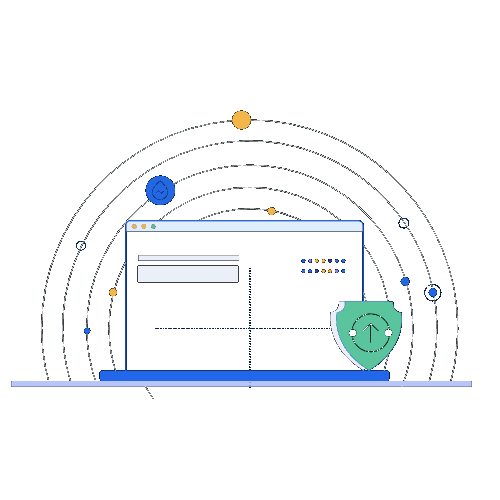Houston Cybersecurity Services and Solutions That Protect Against Cyber Attacks
Future Valued Customer,
The internet has become an essential part of everyday life. With this convenience comes a risk: cyber attacks are not only possible but entirely likely. Nearly every facet of modern society is touched by this technology, which has created many vulnerabilities. Criminals are now exploiting these weaknesses to break into our accounts and steal the data we hold most dear.
TX Solutions offers complete cybersecurity protection, from data encryption and secure storage to malware removal and real-time monitoring. We’ll keep your information safe so you can focus on your individual or business needs. Learn something about cybersecurity and protect yourself and your data from malicious attacks. Learn something about cybersecurity and protect yourself and your data from malicious attacks.
We’re Adding the Human Element Into Cyber Defense.
Frequently Asked Questions:
What is Cybersecurity?
Cybersecurity, also known as computer security or information security, is the practice of protecting electronic information from unauthorized access or theft. In other words, it’s all about keeping your data safe and secure. This can include everything from ensuring that your computer has strong anti-virus protection to being careful about what personal information you share online.
Individuals and enterprises use cybersecurity to protect themselves from a variety of threats, including viruses, hacking, and phishing. By taking steps to secure their systems and data, they can minimize the risk of a costly or damaging cyberattack. Unauthorized access to data can lead to identity theft, financial loss, and reputational damage.
There are many different types of cybersecurity measures that businesses and individuals can take to protect themselves. These include:
* technical measures, such as firewalls and encryption,
* non-technical measures, such as employee education and awareness, and
* physical security measures, such as locked doors and restricted access.
The three major types of cybersecurity attacks are viruses, hacking, and phishing.
A virus is a piece of code that is designed to replicate itself and spread from one computer to another. It can damage or delete files, slow down your system, and even crash your computer. Typically, a virus is spread on the internet by downloading infected files or by opening email attachments.
Hacking is unauthorized access to a computer or network. Hackers can use this access to steal data, plant viruses, or commit other crimes. Hacking can be done remotely, which makes it difficult to detect and prevent.
Phishing is a type of fraud that uses email or other electronic communications to trick people into providing personal information, such as credit card numbers or passwords. Phishers typically pose as a trusted organization, such as a bank or government agency, to gain their victim’s trust. They may even use spoofed email addresses and websites that look legitimate to trick people into providing sensitive information.
Why is Cybersecurity Important?
As our lives move increasingly online, cybersecurity becomes more and more important. We store everything from our photos, our banking information, business documents, and more on our computers and other devices. If this data falls into the wrong hands, it can be used to commit identity theft, financial fraud, or other crimes.
In addition to the risk to our data, businesses also face the threat of cyberattacks. These attacks can result in the loss of sensitive information, financial loss, and damage to the company’s reputation. In some cases, they can even lead to legal troubles.
Cybersecurity is important because it helps to:
– Protect your data and systems from these attacks. By taking measures to secure your computers and networks, we can make it much harder for cybercriminals to succeed.
– Keep our online identities safe. Ensuring that your passwords are strong and your personal information is secure helps to reduce the chances of identity theft.
– Protect our economy. Cybersecurity is vital to the functioning of our financial systems and critical infrastructures, such as power plants and hospitals. A strong cybersecurity posture helps to ensure that these systems can continue to operate in the face of an attack.
– Defend our national security. Cybersecurity is a key part of our nation’s defense against increasingly sophisticated and well-funded adversaries.
What does cyber security do?
Cybersecurity protects against unauthorized access to computer systems, networks, and data. It helps ensure that information and communications technology (ICT) infrastructure and services are available and reliable while safeguarding the privacy of users.
In today’s interconnected world, cybersecurity is essential for individuals, businesses, and governments alike. A cybersecurity breach can have far-reaching consequences, potentially impacting national security, economic stability, and social well-being.
Cybersecurity encompasses a range of measures, including technical solutions, organizational controls, and user education. When used together, these measures can help mitigate the risks posed by cyber threats.
Technical solutions, such as firewalls and encryption, can help protect against unauthorized access to systems and data. Organizational controls, such as policies and procedures, can help ensure that systems and data are used appropriately. And user education can help people understand how to protect themselves and their organizations from cyber threats.
Firewalls are a key component of technical defenses against cyber threats. A firewall is a system that controls the flow of traffic between networks, based on a set of rules. By filtering traffic, firewalls can help prevent unauthorized access to networks and systems. There are different types of firewalls, including:
* hardware firewalls
* software firewalls and
* cloud-based firewalls.
Encryption is another important technical measure. Encryption involves converting text information data into an unreadable form, with the aid of a key. This makes it much harder for unauthorized users to access data. Encryption can be used to protect both data in transit, such as when it is being sent over a network, and data at rest, such as when it is stored on a disk or server.
The cybersecurity landscape is constantly evolving, and new threats are emerging all the time. As such, it is important to stay up to date on the latest cybersecurity news and developments.
Why cyber security is necessary?
Theft of information is not the only reason why cyber security is necessary. There are many other reasons as well including the destruction of data, the altering of data, and the unauthorized use of systems. Any of these activities can have a devastating effect on an organization, its employees, customers, or partners.
In today’s digital age, nearly everything is done online. Businesses conduct transactions, store sensitive information, and communicate with customers and employees via the internet. As a result, they are increasingly vulnerable to cyber-attacks.
Cybersecurity is the practice of protecting electronic information from unauthorized access or destruction. It includes the procedures and technologies used to secure systems, networks, and data from attack, damage, or unauthorized access.
There are many reasons why cyber security is necessary. Here are just a few:
1. To Protect sensitive information from theft or unauthorized access
2. To Prevent data loss or damage
3. To Ensure the availability of systems and data
4. To Maintain the confidentiality of communications
5. To Comply with laws and regulations
6. To Protect the privacy of individual vital information
7. To prevent business disruption etc.
These are just some of the many reasons why cyber security is so necessary. In today’s digital age, it is more important than ever to ensure that systems and data are secure.
What is a threat to cyber security?
A threat in cyber security is anything that has the potential to damage or disrupt computer systems and networks. This can include viruses, worms, Trojans, spyware, and other malicious software, as well as denial-of-service attacks and theft of data.
Hackers often exploit vulnerabilities in software to gain access to computer systems and networks. Once they have gained access, they can then install malicious software or carry out other attacks.
Other threats to cyber security include phishing, social engineering, and identity theft.
Cyber security threats can also come from outside of the computer world, such as physical damage to hardware or theft of equipment.
How is AI changing cybersecurity?
Artificial Intelligence (AI) is changing the cybersecurity landscape by providing new ways to detect and defend against cyber threats. AI-based security solutions can analyze large amounts of data more quickly and accurately than traditional security solutions, identify patterns and correlations that human analysts may miss, and make predictions about future threats. Additionally, AI can automatically generate and test security policies, reducing the burden on human security analysts. This helps to improve the efficiency of security teams and makes it easier to defend against attacks.
In addition, AI can develop new cybersecurity technologies, such as:
1. Intrusion detection systems- AI has the potential to automatically detect anomalies in network traffic, which can indicate an attempt to gain unauthorized access to a system. I
2. Cyber threat intelligence- AI can collect and analyze data about cyber threats, to better understand them and develop ways to defend against them.
3. Security operations center automation- AI can help to automate the tasks of security staff, such as monitoring systems for signs of an attack.
4. Malware detection and prevention- AI can detect malware, by analyzing files for malicious code. AI can also be used to develop new methods of malware prevention.
5. Fraud detection- It detects fraudulent activity, such as fake accounts or fraudulent transactions. With AI, it can be easier to identify patterns of fraud and take action to prevent it.
6. Phishing detection systems- Emails that contain phishing attempts can be automatically identified and quarantined by AI systems.
7. Security automation- Tasks such as patch management and log analysis can be automated using AI, freeing up security teams to focus on other tasks.
AI-based cybersecurity solutions are already being used by businesses and organizations around the world to defend against a wide range of threats, including phishing attacks, malware, and data breaches. In the future, AI is expected to play an even more important role in cybersecurity, as the volume and complexity of cyber threats continue to increase.
Cybersecurity is a rapidly evolving field that is constantly changing in response to new threats. AI is playing an increasingly important role in cybersecurity, providing new ways to detect and defend against cyber attacks. Individuals, Businesses, and organizations must stay up-to-date on the latest cybersecurity threats and technologies to effectively protect their systems and data.
Find out more here:
What is Cybersecurity?
What is IT Security?
What is Computer Security?






